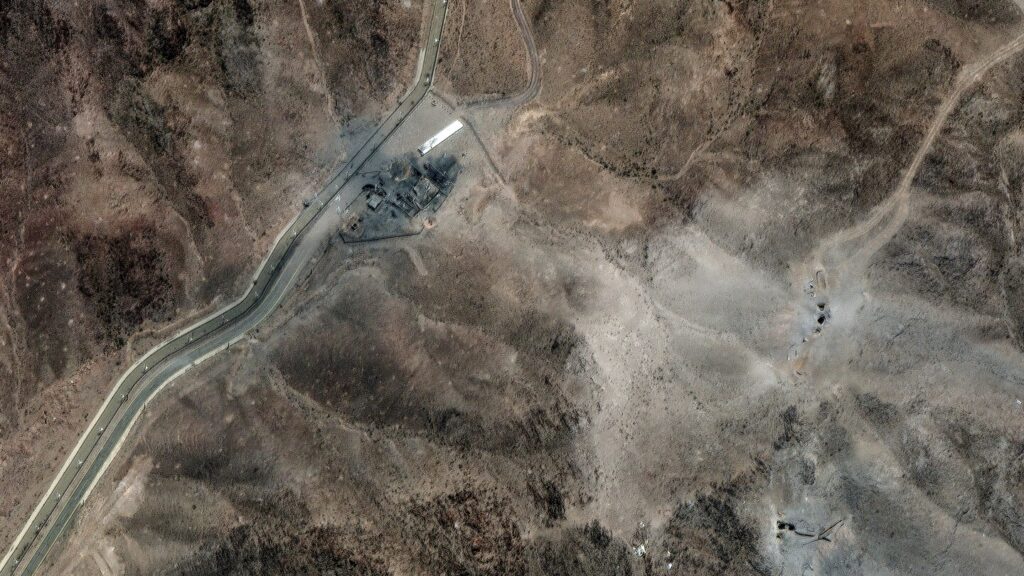
WASHINGTON — In the wake of recent U.S. military strikes on Iranian nuclear facilities, hackers aligned with Tehran have begun targeting American banks, defense contractors, and oil industry companies. While these cyberattacks have not yet caused widespread disruptions to critical infrastructure, experts warn that the situation could escalate if the fragile ceasefire between Iran and Israel collapses or if independent pro-Iran hacking groups fulfill their threats of launching a digital offensive against the United States.
According to cyber analysts, the recent U.S. strikes might push nations like Iran, Russia, China, and North Korea to intensify their investments in cyberwarfare. Arnie Bellini, a tech entrepreneur and investor, points out that cyber operations are significantly cheaper than traditional military engagements, such as those involving bullets, planes, or nuclear weapons. “We just showed the world: You don’t want to mess with us kinetically,” Bellini, CEO of Bellini Capital, remarked. “But we are wide open digitally. We are like Swiss cheese.”
Escalating Cyberattacks on U.S. Infrastructure
Following the U.S. strikes, two pro-Palestinian hacking groups claimed responsibility for targeting over a dozen aviation firms, banks, and oil companies. These attacks, primarily denial-of-service in nature, aim to disrupt online networks and were detailed in a post on the Telegram messaging service. The hackers encouraged others to join their cause, according to SITE Intelligence Group, which monitors such activities.
Federal authorities, including the Department of Homeland Security, have issued warnings about increased Iranian cyber threats. The Cybersecurity and Infrastructure Security Agency (CISA) has urged organizations managing critical infrastructure, such as water systems, pipelines, and power plants, to remain vigilant against potential cyber intrusions.
Iran’s Role as a “Chaos Agent”
While Iran may not possess the technical prowess of cyber giants like China or Russia, it has long been recognized as a “chaos agent” in the cyber realm. Its operations often aim to steal secrets, exert political pressure, or instill fear. Should the ceasefire hold, Tehran might avoid further confrontation with the U.S., but independent hacker groups could still retaliate on Iran’s behalf.
More than 60 such groups have been identified by researchers at Trustwave, a security firm. These groups, sometimes linked to military or intelligence agencies, can deliver significant economic and psychological blows. For instance, following Hamas’ October 7, 2023, attack on Israel, hackers compromised an emergency alert app to falsely warn users of an incoming nuclear missile.
“It causes an immediate psychological impact,” said Ziv Mador, vice president of security research at Trustwave’s SpiderLabs. “Economic disruption, confusion, and fear are all the goals of such operations.”
Intelligence Gathering Amid Cyber Threats
Despite its limited cyberwarfare capabilities, Iran has consistently attempted to use its operations for espionage, particularly targeting foreign leaders. National security experts, including Jake Williams, a former National Security Agency cybersecurity expert, believe Iran is likely to continue such efforts to anticipate U.S. and Israeli strategies.
Last year, federal authorities charged three Iranian operatives with attempting to hack into then-President Donald Trump’s campaign. Williams, now vice president of research and development at Hunter Strategy, asserts that Iran’s focus remains on intelligence collection rather than destructive attacks against U.S. commercial entities.
“It’s fairly certain that these limited resources are being used for intelligence collection to understand what Israel or the U.S. might be planning next,” Williams explained.
Challenges in U.S. Cyber Defense
The call to strengthen America’s digital defenses comes as the Trump administration has reduced funding and staffing for cybersecurity programs, including those at CISA and other intelligence agencies. The recent firing of Gen. Timothy Haugh, who led the NSA and Cyber Command, underscores these challenges.
Ziv Mador highlights the importance of investing in cybersecurity and cyber offense, as demonstrated by Israel’s sophisticated cyberespionage in its strikes on Iran. Arnie Bellini, who recently funded a new cybersecurity center at the University of South Florida, emphasizes the need for educational and technical investments to protect connected devices and networks.
“There is a new arms race when it comes to cyberwar,” Bellini stated. “It’s Wile E. Coyote vs. the Road Runner. It will go back and forth, and it will never end.”
As the digital battlefield evolves, the United States faces a critical juncture in fortifying its cyber defenses to counter growing threats from state and non-state actors alike. The implications of these developments could shape the future of international relations and national security strategies.







